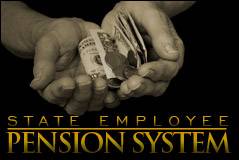Media

Pension Crisis Facts: Are 401(k)s Enough?
Pennsylvania needs pension reform that provides state workers with a sustainable retirement system that’s fair to new workers, existing employees and taxpayers. What are our options? The current system is a defined benefit pension plan that guarantees a government income for life. Switching to a defined contribution plan would require the government to regularly deposit a guaranteed percentage of a worker’s salary into a personal retirement account, like a 401(k).
This is the fifth in a series of blog posts debunking the myths surrounding Pennsylvania’s pension crisis.
Myth: Defined contribution plans, such as 401(k)s, don’t provide for an adequate retirement.
Fact: 401(k)s can be designed to provide a substantial replacement income at retirement when workers invest throughout their entire careers. Evidence showing lower 401(k) income is based largely on workers who participated for only part of their careers.
Because 401(k) plans offer portability when changing jobs, they enable workers to maintain greater long-term control over their retirements. They can even be passed down to children or heirs, and—unlike Pennsylvania’s present system—they cannot be raided or underfunded by self-serving politicians.